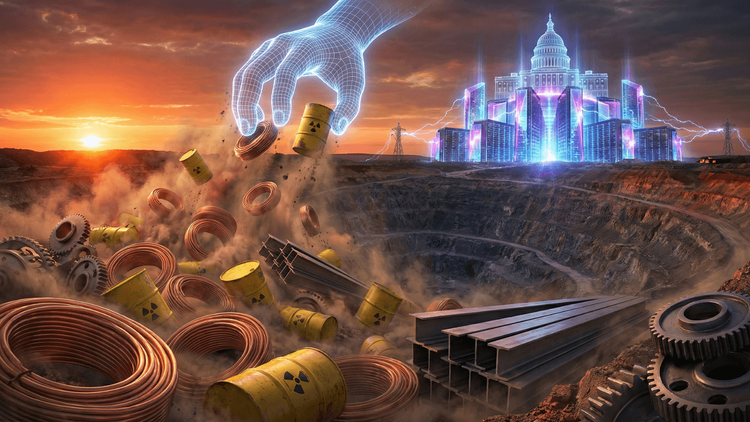US Energy Secretary Declares the Start of a ‘Golden Era’ for Energy Independence
Chris Wright’s First Executive Order Paves the Way for a Nuclear and Energy Renaissance in America

Chris Wright, the newly appointed US Secretary of Energy, wasted no time in setting a bold agenda for the future of American energy. His first executive order, titled Unleashing the Golden Era of American Energy Dominance, lays out an aggressive strategy aimed at expanding energy production, slashing costs, and spearheading cutting-edge technological advancements. The plan focuses on next-generation nuclear power, revitalized fossil fuel development, and a full-scale review of the Department of Energy’s (DOE) research and development efforts.
A New Energy Strategy for Global Leadership
Under President Donald Trump’s renewed push for energy independence, Wright’s order signals a dramatic shift in US energy policy. The directive emphasizes three key goals:
- Expanding domestic energy production – focusing on traditional energy sources such as oil, natural gas, and coal, alongside nuclear and hydropower.
- Driving technological innovation – advancing fusion energy, high-performance computing, quantum computing, and artificial intelligence.
- Streamlining infrastructure development – eliminating regulatory hurdles that slow down energy projects.
Wright’s plan makes it clear that the United States intends to regain its position as the world’s energy leader by ensuring energy remains affordable, reliable, and abundant.
Nuclear Power at the Heart of the Plan
One of the most striking elements of the executive order is its emphasis on nuclear power. Wright calls for the immediate deployment of next-generation nuclear technologies, signaling the start of what he refers to as the "long-awaited American nuclear renaissance." The order highlights nuclear power as a key component of America’s future energy mix, prioritizing its affordability and reliability over net-zero climate policies.
While previous administrations focused heavily on renewable energy, Wright's plan seeks to make nuclear energy a central pillar of the country’s power grid, supporting both domestic and international markets. The DOE is expected to facilitate the rapid commercialization of advanced nuclear reactors, aiming to supply both the US and global energy demand.
Challenging the Net-Zero Narrative
Wright’s strategy departs from previous policies that emphasized a transition toward net-zero carbon emissions. His order explicitly questions the effectiveness of net-zero policies, arguing that they have increased energy costs while failing to deliver meaningful reductions in global emissions.
"Energy matters, and we need more of it, not less," Wright states, reinforcing his belief that energy security must come before climate-focused restrictions. The plan calls for expanding oil and gas production, resuming liquefied natural gas (LNG) exports, and replenishing the nation's Strategic Petroleum Reserve to safeguard America’s energy independence.
Reforming Energy Research & Development
Recognizing the critical role of innovation, Wright's order mandates a comprehensive review of the DOE’s R&D portfolio. The agency will prioritize funding for breakthrough technologies with the potential to reshape the energy landscape, including fusion energy and next-generation computing.
Additionally, the DOE will enforce strict oversight of federally funded projects to ensure taxpayer dollars are allocated effectively. Projects will be subject to rigorous milestone evaluations to guarantee progress and cost efficiency.
From CEO to Energy Secretary: Wright’s Industry Ties
Before taking office, Chris Wright was the CEO and chairman of Liberty Energy, a leading technology provider in the fracking industry. His deep ties to the oil and gas sector have positioned him as a strong advocate for deregulation and energy expansion.
Now at the helm of the DOE, Wright is expected to champion policies that bolster American industry while reducing dependence on foreign energy sources. His background suggests a hands-on approach to energy reform, prioritizing both short-term economic growth and long-term technological advancement.
A Defining Moment for US Energy Policy
With his first executive order, Chris Wright has set the stage for a major transformation in US energy policy. His aggressive stance on nuclear expansion, deregulation, and technological innovation reflects the administration’s broader goal of reclaiming American energy dominance.
While critics argue that abandoning net-zero initiatives could have long-term environmental consequences, supporters see this as a necessary course correction to ensure energy security and economic stability. One thing is certain—Wright’s vision marks the beginning of a new era in American energy policy, one that prioritizes strength, innovation, and self-reliance.






